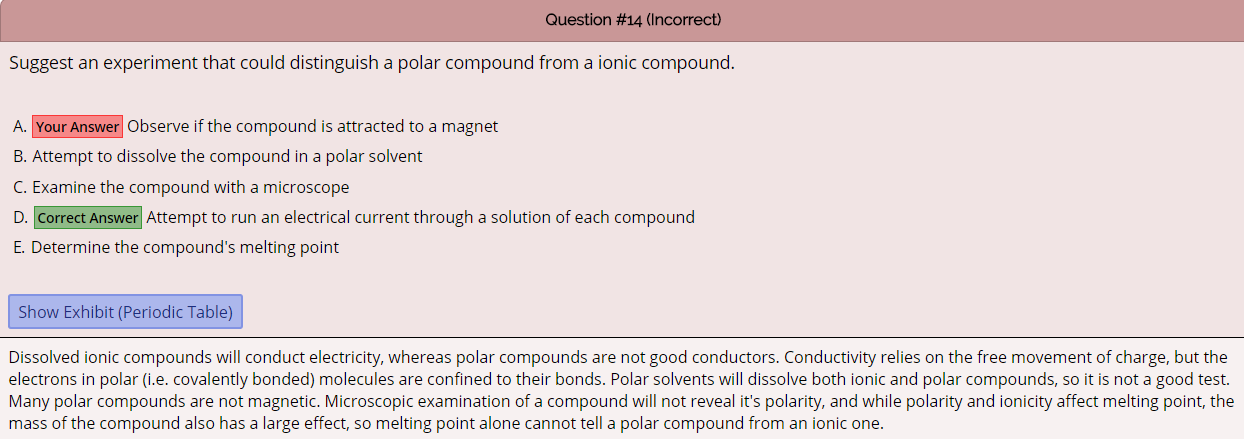- Joined
- May 17, 2008
- Messages
- 3,022
- Reaction score
- 3,617
So in the question below, to distinguish a polar compound from an ionic compound: why isn't the magnet answer valid? The answer explanation just says "many polar compounds are not magnetic", and I would also expect ionic compounds to be magnetic, which makes the magnet strategy seem like it could be used to differentiate between them. Are ionic compounds not attracted to magnets either?



